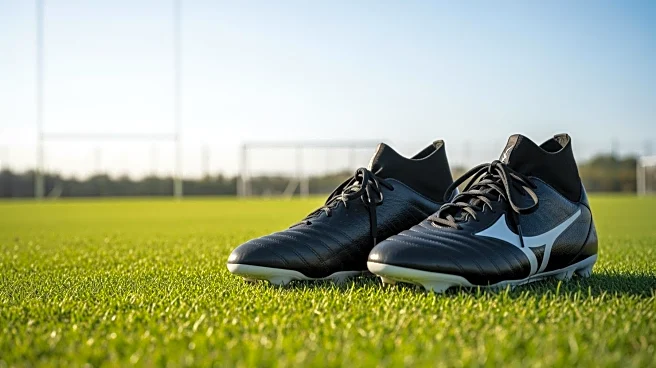What's Happening?
Chelsea midfielder Enzo Fernandez has decided not to participate in Argentina's upcoming training camp, citing a persistent knee injury. Fernandez has been dealing with a bone edema for the past four months, which has worsened due to a busy playing schedule.
The decision to rest was made in consultation with Chelsea's medical team, prioritizing his recovery over international duties. Fernandez's absence from the Argentina squad during the November international break is seen as a necessary step to ensure his fitness for the remainder of the season. Chelsea head coach Enzo Maresca has acknowledged Fernandez's fitness issues, noting that he, along with other players like Joao Pedro and Moises Caicedo, cannot train daily due to similar concerns.
Why It's Important?
Fernandez's decision to prioritize his health over international commitments underscores the challenges athletes face in balancing club and national team responsibilities. This move highlights the importance of managing player welfare, especially in light of demanding schedules that can exacerbate injuries. For Chelsea, Fernandez's focus on recovery is crucial as they aim to maintain their competitive edge in domestic and international competitions. His absence from Argentina's training camp may also influence the team's dynamics and strategy during the international break.
What's Next?
Fernandez will continue his recovery process, aiming to return to full fitness for Chelsea's upcoming matches. His decision may prompt discussions within the football community about the need for better management of player workloads to prevent long-term injuries. Argentina will proceed with their training camp and friendly match without Fernandez, potentially adjusting their lineup and tactics accordingly. Chelsea will monitor Fernandez's progress closely, ensuring he receives the necessary support to recover fully.
Beyond the Headlines
Fernandez's situation highlights broader issues in professional sports, such as the impact of intense schedules on player health and the importance of medical support in managing injuries. It raises questions about the sustainability of current football calendars and the need for reforms to protect athletes' well-being. This case may also influence future decisions by players and clubs regarding participation in international events, emphasizing the need for a balanced approach to career management.















